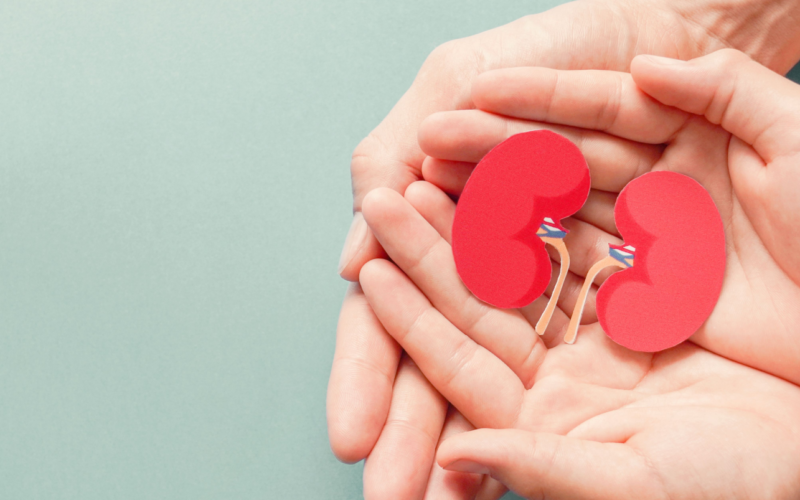Organ donation and transplantation are medical procedures where an organ is removed from the donor’s body and placed into the recipient’s body. Organ donation can be of two types. A living donor is one who donates an organ or part of an organ during his/ her lifespan. The donor most often will be a family member and the donor has the choice to whom he wants to give his kidney or any other transplantable organ. When a person pledges his or her organs for donation, such a person’s organs can be harvested after their death. This is called a deceased donor.
Organ transplantation is done in cases of end organ damage, for example, in chronic kidney disease (due to various causes), permanent liver failure or heart failure, and where medical management alone is not sufficient. End stage renal failure could be due to causes such diabetes mellitus, hypertension, chronic glomerulonephritis, chronic interstitial nephritis, reflux nephropathy, obstructive uropathy or due to various systemic diseases.
In order to perform a successful organ transplantation, the blood groups of the donor and the recipient are matched, and a tissue match is performed, to look for compatibility. Donors are screened to exclude chronic illnesses.

What organs can people donate while still alive?

What are the criteria for becoming a living organ donor?

What to expect after donation?

Rest and Recovery: The resting period of a living donor may vary from donor to donor, depending on their rate of recovery. After the surgery, a usual 3 - 5 days’ stay at the hospital is common. Recovery from surgery takes time, and donors may have to take off from work and stop certain activities (such as lifting heavy weights) for a while. Recovery is also based on the type of surgery performed. They are monitored closely before receiving a clearance for discharge from the hospital. Common problems that donors experience after organ donation are pain at the operated site, and itching sensation around the area of stitches.
Returning to normal activities: The speed of return to normal activities also depends on the donor’s rate of recovery. Ideally, for six weeks, it is not recommended to lift any heavy weights and to avoid sports that may cause injuries to the living donor. The living donors must discuss with their doctor and the transplant staff regarding their recovery status. If the living donor is a female, they are advised to plan their pregnancy six months after their surgery with proper consultation with their obstetrician and gynecologist.
What is the impact of organ donation on the health of the donor?

People can lead normal lives with a single kidney. For living donors, beyond the recovery period, physical activity is advised, such as exercise or yoga, to keep themselves fit and active. It is recommended that the living donors avoid indulging in heavy sports such as football, martial arts, or wrestling. If they are involved in any minor sport, they should always use appropriate protective gear to avoid injury.
Most living donors experience a positive emotional bonding with the recipient.
There is absolutely no effect or change in life expectancy. It is reported that people with a single kidney do not have an increased risk of developing kidney-related diseases or kidney failure. Some of the living donors may develop high blood pressure after the donation; therefore, they should actively take measures to keep their blood pressure under control with physical exercise and dietary modifications.
Living donors are always encouraged to get their regular kidney-related tests done (blood and urine tests), along with overall health check-ups, to keep their kidney function under check.
NU Hospitals, Bangalore, is one of the leading hospitals specialized in nephrology and urology in the country. With years of experience, the doctors here are able to handle and treat any kidney or kidney-related diseases to provide a precise diagnosis and effective treatment. If you or your loved one is experiencing any discomfort due to kidney problems or has such symptoms, visit NU Hospitals today to improve your condition and get treated.
References:
1. Can I donate an organ or tissue while I am alive? Government of the Netherlands. https://www.government.nl/topics/organ-tissue-donation/question-and-answer/donate-organ-tissue-while-alive Accessed on 27 September 2023.2. What to Expect After Donation. National Kidney Foundation. https://www.kidney.org/transplantation/livingdonors/what-expect-after-donation Accessed on 27 September 2023.
3. Living Organ Donation. Health Resources & Services Administration. https://www.organdonor.gov/learn/process/living-donation Accessed on 27 September 2023.
4. What Can Be Donated. Health Resources & Services Administration. https://www.organdonor.gov/learn/what-can-be-donated Accessed on 27 September 2023.
Author: Dr. Shakuntala V Modi

